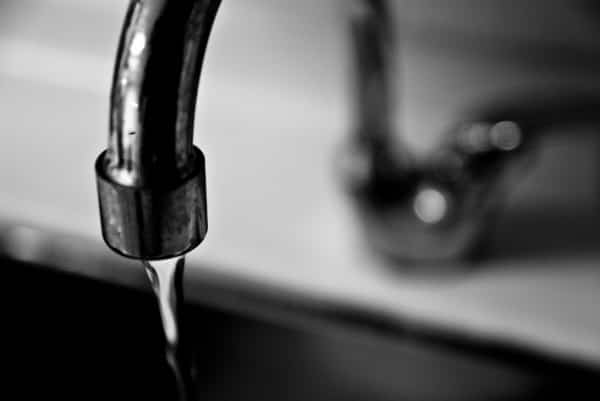Health
Is there lead in your drinking water?

Health
Is there lead in your drinking water?

Photography courtesy of Mark Lee/Flickr Commons
Christine Barisheff: The best way to determine if you have lead in your drinking water is to have your water tested. Inexpensive, easy-to-use, do-it-yourself test kits are available; alternatively you can buy lead test strips to test for contamination. If you are living in an older house or apartment building that was built before 1975, then you more than likely have lead in your water, as it was not until after 1975 that they stopped using lead pipes. (Editor's note: Call your local helpline. Most will offer free lead testing if you're in a potential lead zone or if you are pregnant or have a child under six years of age. Depending on your location, they will determine which water service pipes are owned by the homeowner and by the City and then proceed from there as often you or the building owner will have to replace the pipes on your property before the city can replace the city owned pipes.)
CL: Is it still safe to shower, brush your teeth and wash your face in water that contains lead?
CB: No amount of lead is safe, especially for young children and infants. Although there will not be any immediate health effects from one-time use, over the long term there are serious health effects from lead contamination.
CL: What steps can you take if you do find out you have lead in your water? Do you have any specific recommendations for shower head filters or house tap filters? There is not a lot out there that seem to filter lead.
CB: If you have lead in your water, we recommend using an NSF-certified KDF shower filter; KDF is a specific type of media that reduces 94. percent of lead in the water.
With respect to your drinking water, it is important to ensure you are removing all of the harmful chemicals, toxins, heavy metals, bacteria, etc., while at the same time maintaining the healthy minerals such as calcium and magnesium. A three-stage system removes all of the harmful contaminants in the water, while preserving the healthy minerals. (For more on green living click here.)
CL: What are some of the potential side effects of lead in your drinking water?
CB: Lead affects brain function and the nervous system; children under the age of six and fetuses are especially vulnerable, as it can severely affect mental and physical development. An extensive list of the health implications of lead exposure can be found on the EPA website: https://www.epa.gov/superfund/lead/health.htm.
CL: Any further recommendations to remove lead from your life?
CB: Although tap filters are better than, they are not enough. We have polluted and contaminated our water too much for a one-stage filter to be able to properly remove everything. First and foremost it is imperative to remove the chlorine and fluoride from your drinking and showering water; both have extensive health implications. Second, you need to ensure all the other chemicals, disinfection byproducts, bacteria, viruses, heavy metals, etc. are removed, while at the same time preserving the healthy minerals. Reverse osmosis is a popular filtration method, as it removes all of the harmful contaminants you do not want in your water; however, it also removes all of the healthy minerals that our bodies need. When you drink water that is devoid of minerals, it ends up literally sucking the minerals out of your body, which has quite serious long-term health effects.
CL: According to the Centre for Disease Control, lead in the shower water is not absorbed through the skin, can you clarify?
CB: Just as many organizations such as the Environmental Defence, ThinkDirty, and SkinDeep are advocating to have all the harmful toxins, including lead, removed from our skin care products, so too is it imperative to remove the toxins from our shower water. What goes on your skin, goes into your skin, and is absorbed right into your bloodstream! And it's not just lead, chlorine is a known carcinogen, so by having a ten-minute shower you are actually absorbing more chlorine than if you were to drink ten glasses of chlorinated water. (Editor's note: "According to Health Canada: Lead from drinking water is not well absorbed by the skin and is not taken in through breathing. As a result, exposure to lead from showering, bathing, dishwashing or cleaning is not a concern.")
For more on how to choose the healthiest water for you, click here.














Comments